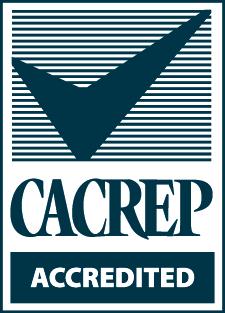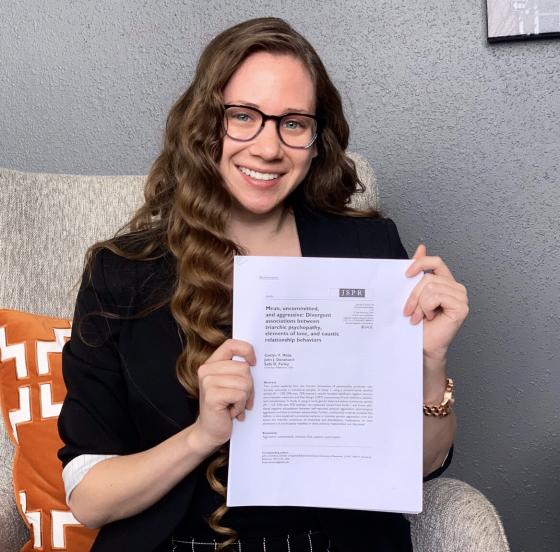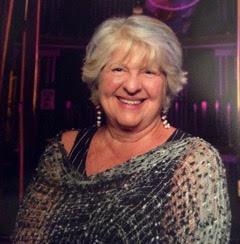
Hood College Counseling Programs Gain National Accreditation
Interview with Andrew Campbell, Ph.D., Program Director, Hood Counseling programs

Hood’s Master’s in Science in Counseling, Clinical Mental Health Specialty, recently received a 2.2 million grant from the Health Resources and Services Administration (HRSA) of the U.S. Department of Health and Human Services (HHS). This grant will help fund Hood College’s Helping the Helper program designed to increase diversity in the field of clinical mental health counseling in the Frederick Area.

In today’s current environment, heavy with economic and societal changes, mental health is a vital issue. According to the Pew Research Center, a third of Americans have experienced high levels of psychological distress during the coronavirus outbreak. Of the respondents, 55 percent describe their financial situation as poor, making counseling services even more crucial as economic challenges magnify unaddressed mental health issues.
Hood’s Master’s in Science in Counseling, Clinical Mental Health Specialty, is well positioned to address that need via a $2.2 million grant from the Health Resources and Services Administration (HRSA) of the U.S. Department of Health and Human Services (HHS). This grant has been earmarked to fund Hood’s Helping the Helper scholarship program designed to increase diversity in the field of clinical mental health counseling in the Frederick Area.
“Our clinical mental health master’s program is one of few CACREP-accredited programs in the state, making admission incredibly competitive,” said April Boulton, Ph.D., Dean of the Graduate School. While admittance to Hood’s mental health master’s program is an achievement by itself, being accepted as an HRSA Scholar elevates that accomplishment, through a scholarship that may fund partial or full tuition, as well as related program expenses, during Scholars’ time at Hood.
Four bright, incredibly talented individuals have been selected for the inaugural HRSA Scholar cohort: Jessica Coleman, Brittany Spoor, Kori Payne, and Joanna Weedlun. These individuals are committed to serving in marginalized communities where an unfortunate scarcity of licensed counselors and other mental health resources have created an opportunity for the HRSA scholars to make a positive, long-lasting impact.
The drive to improve mental health services is manifest in the work our HRSA Scholars have undertaken in their personal and professional lives, and all four identify it as a personal passion. HRSA Scholar Jessica Coleman, states “since a very young age, I have been an advocate and member of organizations designed to provide a positive impact on underserved communities and individuals. Being a minority myself, I think embracing diversity and inclusion with mental health services is critical for the overall wellbeing of these communities.” As a community counselor, Jessica’s counseling work includes a focus on crisis stabilization services and mental health skill building.
HRSA Scholar Brittany Spoor believes that diversity in mental health services will be a crucial component in achieving equity among all populations. As a Psychiatric Rehabilitation Counselor at Excel Youth since November of 2017, her work with children and adolescents with low socioeconomic-status is a daily reminder of the difficultly these individuals experience in accessing mental health services. She emphasizes that “we, as rising counselors, need to be culturally competent and ensure we are serving our diverse population of clients effectively.”
“Human health is, in fact, a moral right,” notes HRSA Scholar, Kori Payne. “The main reason I chose to apply for this scholarship was its focal point. Underrepresented communities deserve proper, adequate healthcare. The mental health of a marginalized community is absolutely vital. I was ecstatic and overwhelmed to have been accepted into Hood’s Clinical Mental Health Counseling Program and awarded this scholarship.”
Joanna Weedlun, a former independent business owner, chose to leave private enterprise to focus on her goal of serving the community through counseling. “Improved diversity in the field will hopefully contribute to better multicultural understandings and practices. I strongly value community, especially in the sense that all our actions have implications for others. I want to honor all communities I am a part of by doing the most good I can each day, and when I fall short, getting up and starting again the next day.”
“We at the Hood College Graduate School are excited and enthusiastic about the high caliber of this inaugural cohort of HRSA Scholars,” stated Dean Boulton. “We are confident that these individuals and future HRSA cohorts are going to be exactly the kind of difference-makers needed to enrich and transform our communities.”
This project is supported by the Health Resources and Services Administration (HRSA) of the U.S. Department of Health and Human Services (HHS) as part of an award totaling $2,221,197 with 0 percentage financed with nongovernmental sources. The contents are those of the author(s) and do not necessarily represent the official views of, nor an endorsement, by HRSA, HHS or the U.S. Government.
Inspired to #GOFURTHER in your education & career? Learn about Hood's graduate programs, including the Master's in Counseling, Clinical Mental Health and the HRSA scholarship, by clicking here.

Interview with Andrew Campbell, Ph.D., Program Director, Hood Counseling programs

"I am fascinated with anything relating to psychopathy and I would love to one day teach or present on the subject covering the myths, the facts, and how important it is to understand the concept of psychopathy in the counseling field"

Elsie Weinstein earned her thanatology degree from Hood and came back a few years later for her counseling degree.
Information will vary based on program level. Select a path to find the information you're looking for!